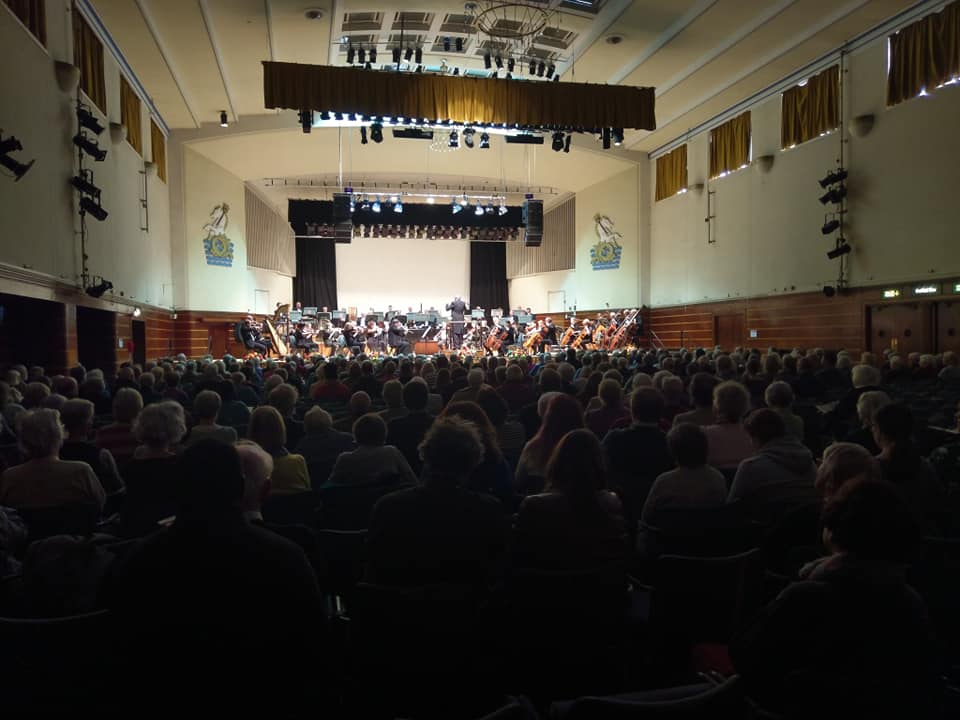‘Tales From The Arabian Nights’ concert – Worthing Symphony Orchestra, conductor John Gibbons, Yi-Yang Chen (piano). Assembly Hall, Sunday May 5 (2.45pm). Dvorak, Carnival Overture; Saint-Saens, Piano Concerto No 5 in F ‘Egyptian’ Op103; Rimsky-Korsakov, Scheherezade (leader/solo violin, Robert Atchison).
Review at Worthing Herold:
https://www.worthingherald.co.uk/whats-on/entertainment/review-worthing-symphony-orchestra-1-8923712?fbclid=IwAR0dwK8wI_4jASpd-zAF6lZ0LJkN5k4dHDjCiJgWtTtocWpgZSD3XASqHF0
It’s 12 months since Chen ran away with all three prizes here in the Sussex International Piano Competition (SIPC). Now the Taiwanese from East Tennessee, USA, returned, subjecting himself to that peculiar concert-giver’s pressure of the world being tipped off about and been anticipating this appearance for the best part of a year – whereas five weeks before the performance, he had not even started to learn to play what was billed – Saint-Saens’ infrequently-heard ‘Egyptian’ Concerto.
The almost non-stop notes of the finale he did not begin committing to memory until the last fortnight. Yet with his flair for the unusual and his technical and artistic capacity to deliver, the result was his second conquest of Worthing – to the cheers of an extra-vocally responsive audience.
Few of those who experienced his Beethoven 4th Concerto in the SIPC Final will have heard his two enterprising solo programmes in the midweek daytime competition rounds. So, for most this was not only a first acquaintance with a captivating and colourful piece of music but a revelatory first encounter with the talent which last May unveiled Yi-Yang’s enticing breadth of musical choices and stylistic expertise.
The fascination of this French concerto is the intercontinental flavour and personality of the soloist’s piano part, which interests and engages the orchestra. The Paris Exhibition brought westwards eastern musical instruments which inquisitive composers went away to imitate. Saint-Saens was among them, late in a long career which began in the romantic 19th Century musical era and, dying in 1921, outlived Claude Debussy, the man who began music’s tonal and colourist emancipation which Saint-Saens seizes upon here.
Saint-Saens takes us on his own suave Nile cruise, complete with the sound of the boat engines, and the scenes and sounds the composer sees, hears, and points out to his listening passengers. Not a dream but the fruits of being an actual trip he made, when his table napkins inevitably became his notepad, recording first-hand the musical notes played or sung on water or land as the boat drifted past.
The eastern instruments uppermost in mind, Saint-Saens’ piano part is by turns percussive and descriptive, representative and evocative. And he serves it on an orchestral bed of leaves, less concerto-conventional, more deliberately echoing the Nile atmosphere on a craft happily free of murder, mystery or novel intrigue.
Chen’s musical and emotional intelligence, dexterity and virtuosity brought it all off, sometimes with eye-catching hand techniques beyond those needed for Beethoven’s 4th, and culminating in closing pages Chen confirmed to me are as difficult at Tchaikovsky’s barnstorming 1st. Chen rewarded the audience reception with an encore. After a long sequence of WSO concerts without one from its soloist, this followed Arta Arnicane’s in April: two successive encores from two SIPC winners arriving like a pair of London buses.
Marvellously cosmopolitan, Chen chose Caribbean composer Wim Muller’s Nostalgic Waltz, the effect as though a tender recollection of a night of moonlit dance on the Nile.
